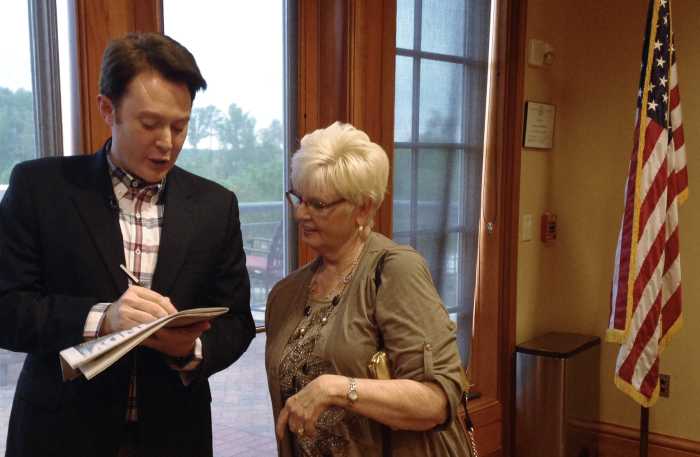Even in a supposedly post-genre world, gatekeeping rules. Country music has kept openly gay artists away from its airwaves. The genre is perceived as the playground of conservative white Southerners and, despite the fact that women have historically made much of the greatest, most important country music, mainstream radio still puts female musicians on its back burner. A few Black men, such as Darius Rucker, Kane Brown and Jimmie Allen, have experienced commercial success in the last decade, but Mickey Guyton is still struggling to become the first Black female star in the genre. Gay rapper Lil Nas X’s country-trap song “Old Town Road” is one of the biggest hits in pop music history, but Billboard magazine removed it from their country charts (despite 2010s “bro country” lifting from hip-hop in a rather clunky and cartoonish manner). After TJ Osborne, who performs as a duo with his brother, came out as gay last year, the group has complained that their radio play has dwindled (albeit without blaming homophobia).
Orville Peck, who uses a pseudonym and covers his face behind a fringed leather mask, arrived on the music scene with his first singles in 2018. Signing to Sub Pop, the legendary indie label that brought us grunge, he released his debut album “Pony” the next year, and he soon leveled up to a major label. Eight of the 15 songs on “Bronco” were released in advance, as the “Bronco: Chapter One” and “Bronco: Chapter Two” eps, over the last few months. He’s got something to prove; while he’s found a substantial audience, he’s often seen as more of a meme than a dedicated musician.
Peck’s reception has suffered from his lack of interest in country music’s standards of authenticity. Although openly gay, he’s performing as a character. (Indeed, his costume is a masculine form of drag, alluding to fetish gear.) His background lies in rock music, with “Pony” mixing the influences of Elvis Presley (on “Outta Time,” he sings “she tells me she don’t like Elvis/and I want a little less conversation, please”) and Roy Orbison with hints of shoegaze and dream pop. Savvy Internet detectives quickly tracked down his tattoos and speculated about Peck’s past as the drummer for punk band Nü Sensae. He’s also performed in musical theater. His vocals are blatantly affected, sung in an artificially deep baritone with a phony Southern American accent, despite being a South African who came to Canada as a teenager.
In an interview with Pitchfork, “Queer Country” author Shana Goldin-Perschbacher said, “Orville Peck went through the rock world and is picking and choosing what he wants from country music. It’s probably pretty freeing to be able to take so much from country — the iconic looks, gestures, and vocality, the twang of the guitar and the dramatic storylines, even the geographic locations of music videos — without having to work your way up through Nashville and convince every single person that you belong even though you’re gay.”
Still, I see country fans’ hesitation. It took me months of repeat listens to warm up to “Pony,” but I eventually did so to the point where it made my 2019 top 10 list. Peck has avoided the easier route of selling himself as an Americana/roots artist; his embrace of artifice furthers one of the major threads of queer music.
Thanks to producer Jay Joyce, who’s worked with Eric Church and Miranada Lambert, the sound of “Bronco” is thicker and more bombastic than “Pony.” It’s full of layered, carefully mixed guitar sounds, especially vibrato-laden rockabilly riffs. Vintage Bruce Springsteen comes to mind, along with his alt-rock-gone-arena descendants like the Killers and Sam Fender. The pounding bells and drums and shouty vocals of “Daytona Sand” get the album off to an exciting start. “Bronco” aims for an immediate punch.
Peck’s lyrics speak in grand, mythic terms. They write gay men into an Americana narrative from which we’ve been excluded. The geography of “Bronco” is an explicitly American, indeed a Southern one: on “City of Gold,” he sings “tell ‘em I’m back on southern time.” His songs are full of place names: “Outta Time” lays out a story of wanderlust that begins with “I met a man in Denver/Bottleneck and some old blue jeans/Tells me we’ve got something special.”
Following the theatrical aura and stripped-down sound of “Pony,” the production and songwriting on “Bronco” try to make the best possible case for Peck’s merits. While it’s a pleasurable listen, the increased level of gloss makes his flaws as a singer more noticeable. He relies too much on his Elvis imitation, and when he leaps up to higher notes, the strain is very audible. On the ballad “Let Me Drown,” he fights the piano and strings in a loudness contest and loses. But the album’s hooks eventually sink in.
Peck’s whole persona rejects the notion that minorities should make explicitly autobiographical work. If he’s singing about his own experiences and emotions, they’re filtered through several layers of nostalgia and pop culture imagery. Even so, his passion shines through on songs like “Daytona Sand,” “Hexie Mountains,” and the title track. “Bronco” transcends its musical Pinterest board tendencies. Loaded down with references to rodeos, the South and the open road, these songs still resonate. Throwing away the confessional, Peck uses a campy theatricality to reinvent himself.
ORVILLE PECK | “Bronco” | Columbia Records



































